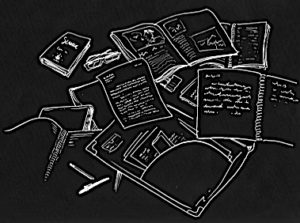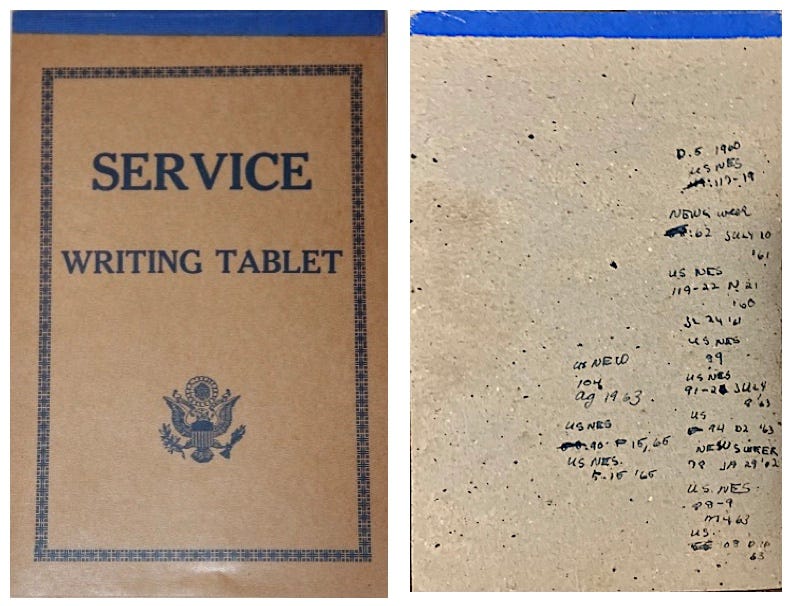 Notebooks & Pads.
Notebooks & Pads.
One of the most Quixotic quests of my writing career has been the search for the perfect notebook and/or pad. I imagine many other writers have tilted at that same elusive windmill.
I’ve used everything from dime (now dollar) store notebooks that are spiral bound at either the side or top, to journals and blank books that seem too elegant to ravage with my impatient scrawl.
Pads? Don’t get me started: Plain, lined, or even graph paper; yellow, gray, pink, blue; letter & legal size; eco-friendly and not-so; one for each project—a designation that lasts about a day; clipped to different clipboards or put into large quasi-binders with pockets, dividers, and labels on tabs that are immediately covered up by the oversize papers I shove in.
Some people claim the secret is to use one notebook for everything you want to take notes on, chronologically, until it’s filled. I’ve tried that. The battle between my creativity and futile obsession to keep things organized turned the poor thing into an illegible war zone.
I’ve tried starting from the left with my left-brain ideas and from the right with my right-brain ones. Pretty soon, I forget the difference. I never reach the center from either side, anyway. Plus I’m a lefty. Which, in terms of writing left-to-right, is a handicap that only Leonardo overcame elegantly and, even then, in a literally backhanded way.
Every few months I grab all the notebooks and pads in sight, transcribe anything I think could possibly have any value, and then tentatively throw away the remaining pages, still concerned I might have lost a good one-liner forever.
There’s something about certain pads that have been around for a while that transcends the words written on them. My favorite is the “Service Writing Tablet” that soldiers were given during World War II to write letters home (and/or their last words). Fortunately,  for my dad (and me), it was the former. He didn’t use those “tablets” much because, when his superiors found out he was an English Major, they handed him a typewriter so he could type grammatically correct reports for headquarters. It also made it possible for him to send legible letters home—many of which tried to set his family’s mind at ease by obscuring the fact that there was a war going on and he was closer to the front than he let on.
for my dad (and me), it was the former. He didn’t use those “tablets” much because, when his superiors found out he was an English Major, they handed him a typewriter so he could type grammatically correct reports for headquarters. It also made it possible for him to send legible letters home—many of which tried to set his family’s mind at ease by obscuring the fact that there was a war going on and he was closer to the front than he let on.
Somehow I ended up with one of those “Service Writing Tablets”. I’ve torn out most of the pages over the years. But, on the rough cardboard-like back, there are scribbled references for some high-school term paper that I wrote—undoubtedly while standing over a huge oak card catalog in the library.
I can still see…it’s more a feeling…the kid who wrote those notes fifty years ago. The words may now be irrelevant, but the synesthetic memories buried in that pad say a lot more than those words ever did.

